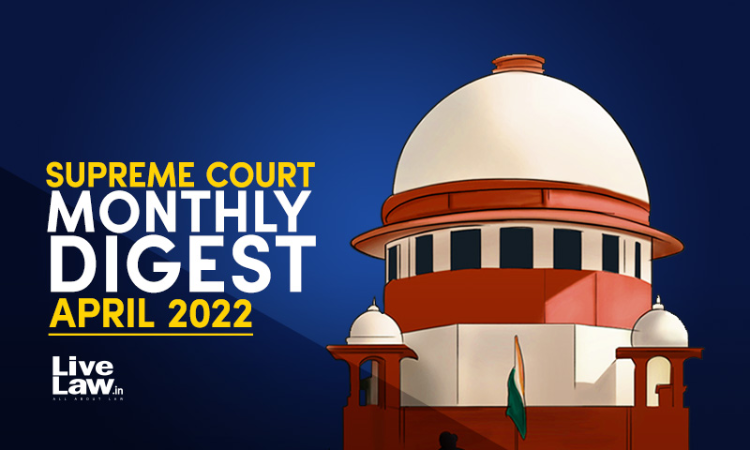- Home
- /
- Top Stories
- /
- Supreme Court Monthly Round-Up...
Supreme Court Monthly Round-Up April 2022
Shruti Kakkar
4 May 2022 9:19 AM IST
1. Power Of Attorney Must Be Construed Strictly; Agent Can't Sell Without Express Authorisation : Supreme Court Case Title: Umadevi Nambiar Vs Thamarasseri Roman Catholic Diocese | CA 2592 of 2022 Citation: 2022 LiveLaw (SC) 338 The Supreme Court observed that the power to sell is not to be inferred from a document of Power of Attorney which has to be...
Next Story



